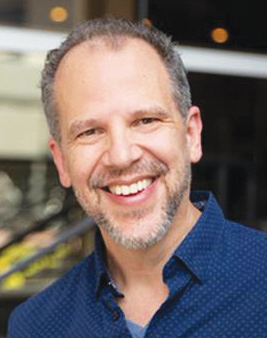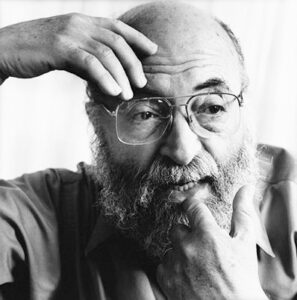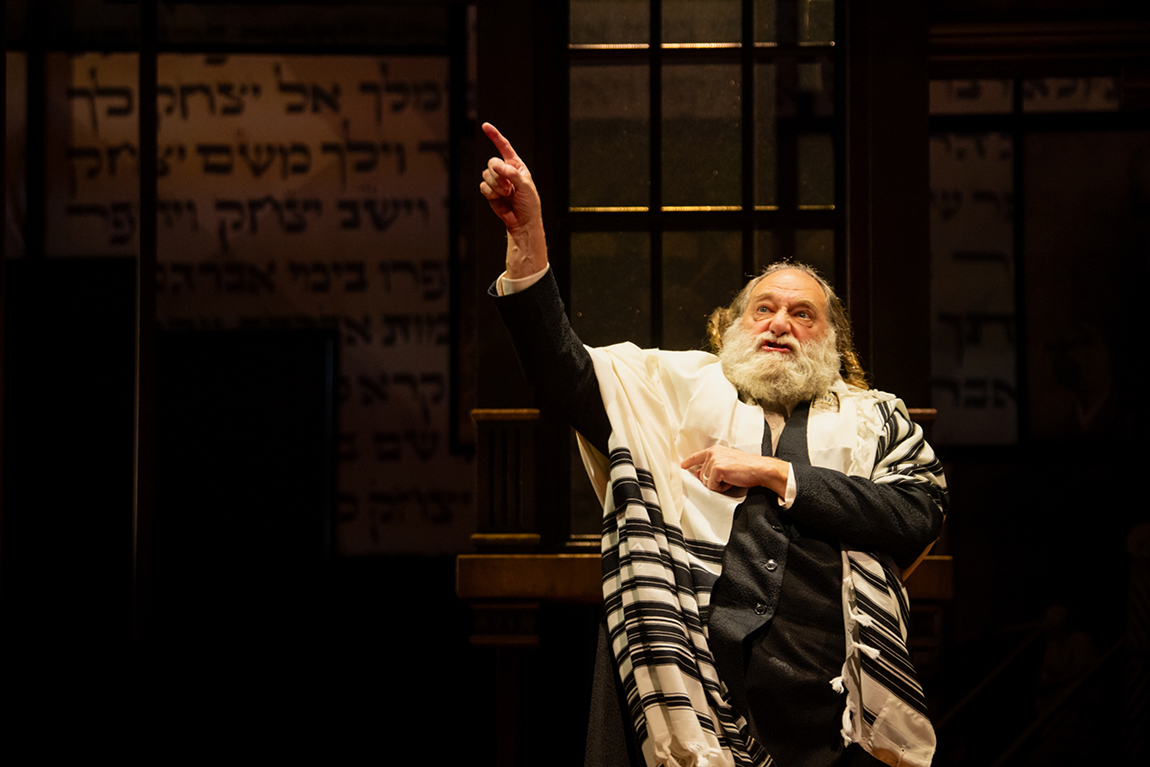Director co-wrote the play with Chaim Potok
Interview by Marshall Weiss, The Dayton Jewish Observer
Not only did Aaron Posner co-write the play The Chosen with late literary giant Chaim Potok — author of the iconic 1967 novel — he also directed its premiere production in 1998 and has continued to direct it over the years. Here, Posner talks about his new production, co-produced by Milwaukee Repertory Theatre and Cincinnati Playhouse in the Park. This interview has been edited for length and clarity.
How did you come to write this play with Potok?
I was living in Philadelphia at the time, I was the artistic director of the Arden Theatre Company, and I had met Chaim, who had lived outside of Philadelphia. I’d actually been in a reading of a play that he wrote, as an actor way back when I first moved to Philly, this is back in the late ‘80s.
It was a time in which I was in my 30s and thinking about my Jewish identity and looking for something to adapt for the stage that would allow me to engage with who I was in terms of my Jewish life. That was the kind of question in my mind at the time.
And having met Chaim, I thought I would go ask him for advice on what I might adapt, because I was reading a bunch of Jewish literature and not finding something that I was really excited about. I had read The Chosen in junior high school and didn’t remember it very well.

And so I went back and read it again and as soon as I read it, I thought, this is what I wanted to do. And I just fell in love with the book for many, many reasons. And went and spoke with Chaim, I just asked him if it might be something he’d be willing to let me do, and work on with me.
There had been the movie of it already — and it had been quite successful — that he was very happy with. There had been a musical of it that he was not happy with. But he liked my idea, which was to keep it a very simple story about two boys and their fathers. So it was very much this story of this friendship and these two remarkable young men and their very complicated, very different fathers. So that was the project we embarked on.
It wasn’t too many years before his passing, toward the end of his life.
Although it didn’t feel that way at the time. He passed in 2002 and this was ‘97 when I first went to speak with him. And ‘98, and I think we premiered in early ‘99, the winter of ‘99, the first production. He certainly seemed absolutely healthy and a strong, a dynamic person. And he was very engaged in the process. The cancer that took him came very quickly.
What was that like, to work with Chaim Potok?
He was a very serious person overall, in my experience with him. We talked about serious literature a lot. His work meant a great deal to him. This was the novel that put him on the map, so it had a very special place for him. I found him to be just wonderfully supportive and smart.
We had a number of opportunities to speak to audiences together and go out and do talks together. He was just a very inspiring, incredibly intelligent person to be around. And very smart about his own work. He knew what made it work. He knew where his traps were, he knew how not to step in those traps.

I’ve been directing plays and writing plays for a very long time and there is no story I’ve ever put on the stage that I fully believe is more, to use his word, more worthwhile than this story. It’s a word he uses a lot in this book. It tells a very deep and human story about friendship, about coming of age, about choosing who you want to be in the world, about bridges across difference.
This was premiered at the Arden Theatre?
It was. It was a co-production between the Arden Theatre and City Theatre in Pittsburgh.
And you directed that first production.
Yes. I’ve directed it several times since. Then I re-adapted it in about 2017-18. I cut it from five actors to four actors. There was a separate narrator originally that doesn’t exist anymore. This is my first time directing this version of it.
How often is it produced?
It comes and goes in waves. It’s gotten a little bit produced since the pandemic. It has had about 75 productions around the country and a little bit abroad as well. I feel it’s a worthwhile time to be telling this story, with all the complexities in the world, stories that are very much looking at the difficulties and Jewish complexity, Jewish humanity, those Jewish struggles that are very human struggles and you certainly don’t need to be Jewish to understand and engage with this story. It is an interesting time to talk about uniquely Jewish struggles.

People sometimes think, oh, it’s about a very religious Jew, a Chasidic Jew and a secular Jew, but it’s not. Both families are deeply religious and observant families. But from the outside, so many struggles seem intermural. All people in the Middle East seem similar (in the eyes of) people outside the Middle East. The Catholics and Protestants in Ireland seem similar to anybody outside Ireland.
But we know that human beings find all sorts of ways of dividing themselves and of, unfortunately, drawing lines and creating difficulties and conflict. These are passionate, intelligent people who have the capacity to deeply disagree in fundamental ways about things.
The struggles continue in all sorts of complicated ways. Essentially, this is not a story about politics or religion. Even though you’re dealing with news of the Holocaust and the founding of the State of Israel. It is a story about faith, but mostly it’s a story about humanity. And it’s a story about finding your path in life, about who you want to be in the world.
For all those religious and political differences, those are creating this sort of backdrop or playing field for what are very human, very relatable struggles between well-intentioned people.
You also adapted Potok’s My Name is Asher Lev for the stage after he had passed.
Yes. I worked with Adena Potok, his widow, who is still alive. She worked with me closely on that adaptation, which actually was done at Cincinnati Ensemble Theatre a number of years ago, and I’ve also done it at Milwaukee Rep as well.
Do you approach each production differently?
People’s ears are different now even than they were six months ago. And radically different. You know, Chaim and I spoke a lot about, he wrote this novel in ‘66-’67, and by the time I was adapting it in ‘98, his view about his optimism or pessimism about people coming together across differences, about splits between the Jewish community, he was in a very different place 30 years on.
And now we’re another 30 years. I can’t pretend for a moment that people won’t hear this story very differently because of what’s going on in the world. And they should. And I did make some small changes to the script for this adaptation. I didn’t back off or soften or harden anything. I just tried to be aware of the ears with which people would be listening to this story. And I checked in with Adena and the whole Potok family about that, too. The foundation of the book remains the same.
Cincinnati Playhouse in the Park presents The Chosen, April 13-May 12, 962 Mt Adams Cir., Cincinnati. Tickets begin at $35, with discussion programs for adults and teens over the course of the play’s run. For details and to purchase tickets, go to cincyplay.com or call the box office at 800-582-3208.


